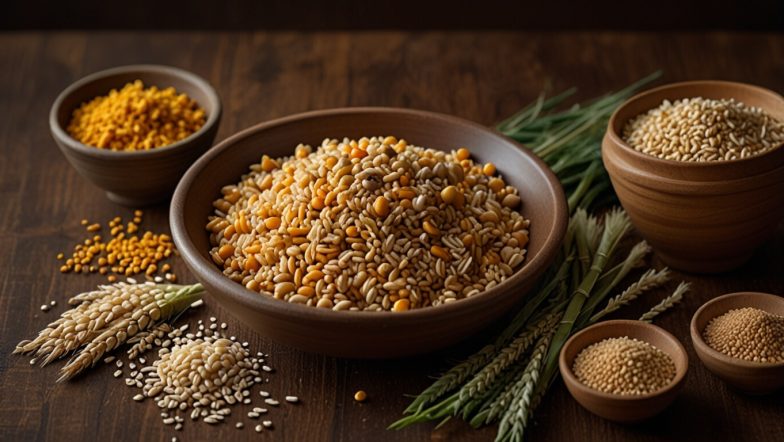When it comes to health and well-being, the power of food cannot be underestimated. In Nigeria, a treasure trove of local foods and ingredients holds the key to better health. From the vibrant markets of Lagos to the rural farms of the North, traditional Nigerian foods offer not only a rich culinary experience but also a wealth of health benefits. Join us as we delve into the impact of local foods on health and explore the nutritional value of Nigeria’s indigenous cuisine.
The Diversity of Nigerian Local Foods
Nigeria’s cultural diversity is reflected in its cuisine, with each region contributing unique flavors and ingredients. From the hearty soups of the South to the grain-based dishes of the North, the country’s indigenous foods are a testament to the variety and richness of its ecosystems.
Nutrient-Rich Staples
- Yam: A staple crop in Nigeria, yam is a complex carbohydrate rich in fiber and essential nutrients like potassium and vitamin C.
- Millet and Sorghum: These grains are prevalent in the Northern regions, providing a good source of energy, fiber, and minerals.
- Cassava: Another important root crop, cassava is versatile and can be transformed into various dishes. It’s a source of carbohydrates and dietary fiber.
The Power of Local Vegetables
- Ugu (Fluted Pumpkin): Rich in vitamins A, C, and E, ugu leaves are a nutritional powerhouse often used in soups and stews.
- Okra: This slimy vegetable is a good source of dietary fiber, vitamins, and minerals, and it adds a unique texture to dishes.
- Ewedu (Jute Leaf): Ewedu is known for its mucilaginous texture and is rich in antioxidants, vitamins, and minerals.
Protein-Rich Delicacies
- Fish: A common protein source, fish provides essential fatty acids like omega-3, which are crucial for heart health and brain function.
- Meat and Poultry: These protein sources are rich in essential amino acids, iron, and other nutrients that support growth and overall health.
- Beans and Legumes: These plant-based proteins are high in fiber, vitamins, and minerals, and they contribute to satiety and blood sugar control.
Harnessing the Nutritional Benefits
- Balanced Diets: Traditional Nigerian meals often include a combination of carbohydrates, proteins, healthy fats, and vegetables, providing a balanced array of nutrients.
- Seasonal Eating: Consuming foods that are in season ensures optimal freshness and nutritional value.
- Culinary Techniques: Traditional cooking methods, such as steaming and boiling, help retain the nutrients in foods.
Impact on Health and Wellness
- Heart Health: Diets rich in whole grains, vegetables, and lean proteins can contribute to a healthy heart and reduced risk of cardiovascular diseases.
- Diabetes Management: High-fiber foods like yam and beans can help regulate blood sugar levels and improve insulin sensitivity.
- Immune Support: Vitamins and minerals from local foods can bolster the immune system, helping the body fend off illnesses.
Preserving Tradition in a Modern World
- Challenges: Changing lifestyles, urbanization, and the influx of processed foods pose a threat to traditional dietary habits.
- Education: Raising awareness about the nutritional benefits of indigenous foods can encourage healthier choices.
- Innovation: Blending traditional and modern cooking techniques can make local foods more appealing to younger generations.
Embracing Health from the Ground Up
In a nation rich in cultural diversity and natural resources, local foods are more than just sustenance—they’re a gateway to improved health and well-being. From the soil to the plate, Nigeria’s indigenous cuisine is a testament to the harmony between nature and nourishment. As we savor the flavors of our heritage, let’s also recognize the impact of local foods on health and strive to embrace these nutritional treasures for a healthier, more vibrant Nigeria.







Leave a comment